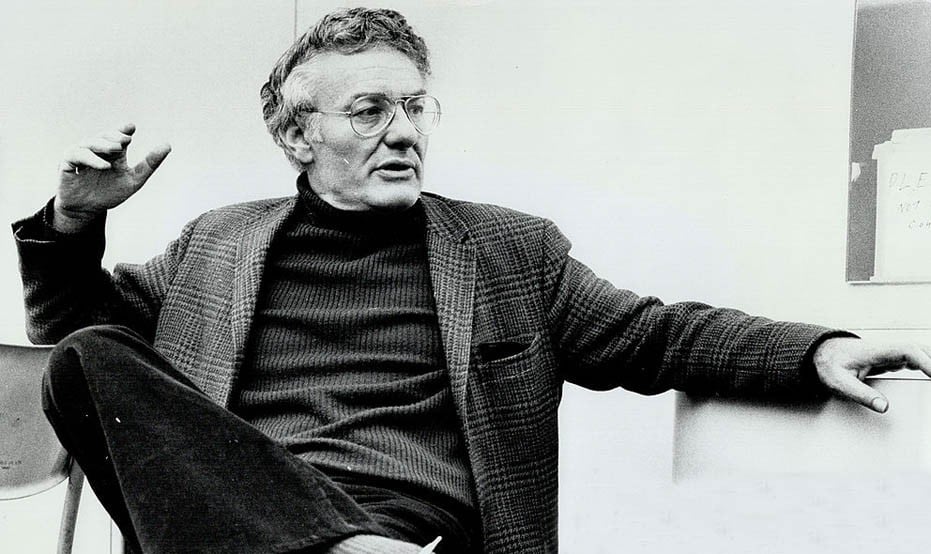
On Peter Shaffer’s passing, a look back at the popularity his work enjoyed by the audiences in Lahore

We in Lahore got to know of Peter Shaffer when his play Black Comedy was discovered. It was found to be good for staging in the city as it was in line with the taste of the audiences here.
In the 1960s and 70s, theatre enthusiasts -- always amateur, always greedy for plays to be staged in Lahore -- hunted for scripts that they got to know had had successful runs in the west or were rated as quality stuff by the critics there. There were few original scripts and the choice always fell on a play, an English play, which could be staged, or as a second option the adaptation of a foreign play. Very few ventured forth to write original plays. Most felt they were not familiar with the craft of writing or scripting an original stage play. The plays that were written became either cast in the mould of a radio play with the emphasis on the word, failing to supplant corresponding action on stage, or were a recall to the Parsi theatre with melodrama milked to its very limit.
Shaffer’s play was a comedy, a black comedy, true to its title, but it was light -- more in the Noel Coward style -- and not too taxing for the audience. It had situations and humour which could be easily imposed on the local conditions and so adapted in Urdu.
There was a lobby which thought that theatre should only be in English and foreign plays should be performed in English only. But then there was a nationalistic fringe that desired plays in local languages and, as a lesser evil, the option of foreign plays being adapted in one of the local languages was a favourable consideration.
The desire to stage an English play always started from Shakespeare, and then in the name of contemporaneity came down to Ibsen, Strindberg, Wilde and Shaw. Somehow the contemporary theatre in the West End and Broadway was found missing from the wish-list of plays to be staged here. This was basically due to lack of updated information about the theatre scene in the West. Beckett, Pirandello, Ionesco, Anouilh, Sartre, then Thornton Wilder, and Arthur Miller were all too high-brow. But Peter Shaffer seemed more homely.
If the plays that were staged in the West were to be staged simultaneously in Pakistan, particularly in Lahore, we would appear to be on the ball, and hence could shed the impression of being backward and lagging behind. It is difficult today to conceive or imagine the time before satellite channels, internet, mobiles phones and apps because what happened in the West reached us years later in those times. The news regarding reception of a play or a film was followed by a gap of months or years and even popular cine blockbusters were released on their second international run. Something like a stage play was too esoteric, and thus, if staged within five years, was still considered current and contemporary.
Black Comedy was staged many a time in English as well as an adaptation -- one does not recall it being staged as a translation. Even translations were such that they were closer to adaptations.
Black Comedy literally means doing the play in pitch darkness. There is a power failure and the play or the action of the play is held on stage in pitch darkness. Not that there was darkness of the stage but the characters are supposed to act out as if there is no electricity. Through this metaphor, the real lives and intention of the characters start to appear. Mostly, it is their sinister and evil side that dominates and many a secret is revealed or are close to being revealed in the dark. It was used as a metaphor by Shaffer but in Pakistan electricity failure, or what has come to be known as a standard term ‘loadshedding’, is no stranger. The play was held in the decades when power outages were not that frequent and no where close to as it has been in the last decades or so. It was easier even then to identify with the action of the play because of the familiarity of the conditions.
After many a production of the play in English, it was adapted by Shoaib Hashmi as Pole Fuse in Urdu and staged as one of the Alhamra’s productions in the early 1990s. It turned out to be a hilarious comedy because of the familiarity of the conditions. The more sinister or darker side was almost sliced away, making it an uproarious comedy with the lighter touch emphasised in its adaptation. In the end, it turned out to be a delightful production that one laughed with and did not carry a burden of any kind on leaving the theatre.
The play and the adaptations have been staged many times since by various theatre groups and with the growing menace of power outages, the interpretation of the play or action has become literal, instant and recognisable, if not more profound.
There were other plays of Peter Shaffer that were very acclaimed and made into very impressive film productions as well but one never thought of adapting them and putting them on stage. Equus was probably cerebral and too western in sensibility but Amadeus, on the life of Mozart, was tailor-made for a thespian conflict between two music maestros. It could have fitted ideally into the culture of intense rivalry and competition between the leading ustads of the times, so familiar here too. But probably, music or the need to have an input of music desisted theatre personages in yielding to that temptation.
(Peter Shaffer died on June 6, 2016)